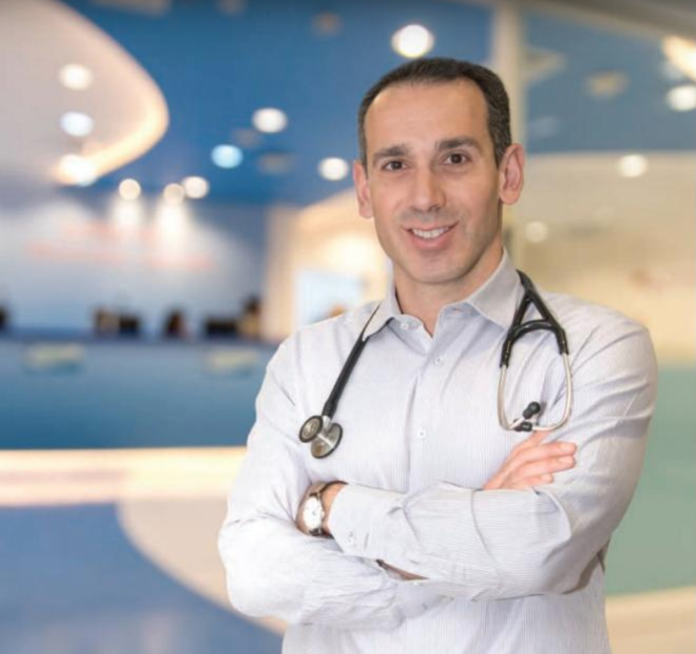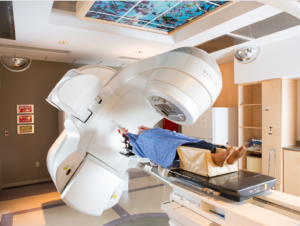
Researchers at Lawson health research Institute are using high-dose radiation to help improve survival in patients with cancer that has spread to other parts of the body.
When someone has cancer, one of the biggest fears is hearing these words:“the cancer has spread.”
When cancer spreads from an original tumour to other parts of the body, known as metastasis, it is generally considered incurable.
This long-held belief is now being challenged by researchers at Lawson Health Research Institute, the research institute of London Health Sciences Centre (LHSC). In an international study, researchers showed that high-dose radiation can improve survival in patients with cancer that has spread to five or less sites.
Led by Dr. David Palma, a researcher at Lawson and radiation oncologist at LHSC, SABR-COMET was the first randomized phase II clinical trial of its kind. It included 99 patients with oligometastatic cancer – cancer that has spread to a limited number of sites in the body.
SABR-COMET patients were those previously treated for a solid tumour cancer that had returned in up to five different places in the body.The majority of patients had a primary tumour that was lung, breast, prostate or colorectal in origin. Research participants were recruited from across Canada, Australia, the Netherlands and Scotland, including 51 patients from LHSC’s London Regional Cancer Program.
London Leading the Way in Research
The study examined the use of stereotactic ablative radiotherapy (SABR) to improve patient outcomes through comprehensive treatment of oligometastatic tumours (COMET).
“SABR is a technique that precisely delivers radiation to a tumour in substantially higher doses than normal with the goal of destroying cancerous cells,” says Dr. Palma, also a clinician- scientist at the Ontario Institute for Cancer Research (OICR).

Patients were randomly selected to receive either standard treatment, consisting of chemotherapy or radiation therapy, or standard treatment combined with SABR to target every known tumour in the patient’s body.
The research team found that patients who received SABR lived longer than patients who did not. After five years, 46 per cent of patients treated with SABR were still alive compared to 24 per cent of those who received standard treatment. Median survival for SABR patients was 41 months compared to 28 months for non-SABR patients. SABR also doubled the amount of time patients lived without further cancer growth – a median of 12 months for patients receiving SABR and six months for those not.
“In the past, the spread of lung cancer to the bones or breast cancer to the brain was considered incurable,” says Dr. Palma. “We’ve shown for the first time that if cancer has spread to only a few spots, we can target those tumours with high-dose radiation to increase how long a patient lives.”
Some patients receiving SABR developed additional tumours during the trial. Those additional tumours could sometimes be targeted and successfully treated. Because of this success, Dr. Palma is now planning a follow-up study that will assess the use of SABR in patients with cancer that has spread to up to 10 sites.The study, called SABR- COMET-10, will launch this year and is supported by London Health Sciences Foundation.
















